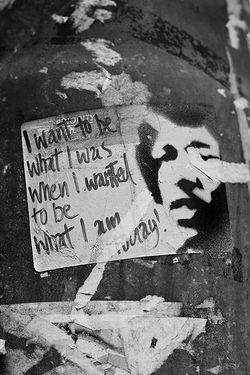Entrepreneurship and Delusion: Does Glamour Drive Economic Progress?
 Does a flourishing economy depend on delusion?
Does a flourishing economy depend on delusion?
Adam Smith thought so. In a famous passage in The Theory of Moral Sentiments he described a "poor man's son, whom heaven in its anger has visited with ambition." The young man imagines how much easier his life would be if he could live in a grand home, attended by servants and traveling by coach rather than on foot: "He thinks if he had attained all these, he would sit still contentedly, and be quiet, enjoying himself in the thought of the happiness and tranquillity of his situation."
The man spends his life striving to achieve his dream. He becomes wealthy, with all the luxuries he imagined, but to get there he has to work so hard that he can never relax.
"Through the whole of his life," writes Smith, "he pursues the idea of a certain artificial and elegant repose which he may never arrive at, for which he sacrifices a real tranquillity that is at all times in his power." The man is deluded by the glamour of wealth, tricked by an illusion. Yet his achievement is not only real but socially beneficial: "It is this deception which rouses and keeps in continual motion the industry of mankind."
Read the rest at BigQuestionsOnline.
[Photo "Ambition" by Flickr user Ashley R. Good, used under Creative Commons License.]